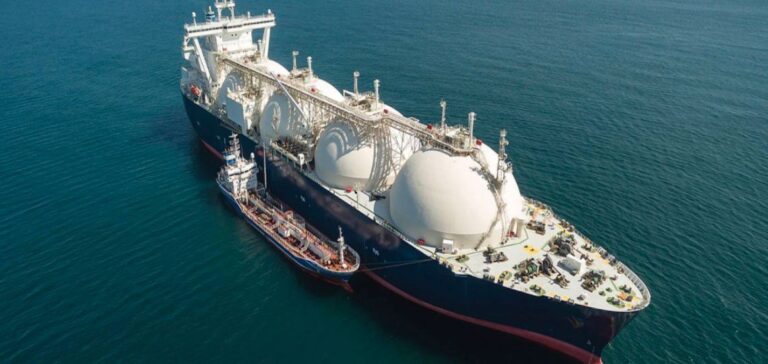Japanese LNG buyers are in no hurry to secure cargoes at present, despite potential strikes on the North West Shelf LNG project in Australia, one of their main sources of supply. Any short-term impact should be limited, as Japan enters a period of lower demand.
Risks of strikes on an Australian project: concerns for Japanese LNG supply
Japanese company officials and sources said they had received no notification of any impact on supply to date, but are keeping a close eye on potential industrial action on the offshore platforms of the NWS LNG project operated by Woodside Energy.
Woodside is set to enter into what appear to be final negotiations with the Offshore Alliance union on August 23. Failure to reach an agreement would pave the way for industrial action on its platforms. The Offshore Alliance unanimously approved the issuance of a seven-working-day notice to Woodside if a resolution is not reached by the end of August 23, according to the alliance on its Facebook page on August 20.
Industrial action could begin as early as September 2 on Woodside’s North Rankin Complex, Goodwyn Alpha and Angel platforms, which supply gas to the NWS LNG project, ranging from minor action to full-scale shutdowns after seven working days’ notice.
Limited impact in Japan: moderate expectations in the event of strikes on NWS LNG platforms
Limited impact in Japan For the time being, NWS cargoes are being loaded as normal according to the annual delivery schedule, and Japanese buyers have not received notification of any changes in supply plans, according to industry sources. Buyers are therefore waiting to see how events unfold.
“We can’t act now based on expectations [quand rien de concret n’a été décidé],” said a Japanese importer.
In any case, the uncertainty surrounding industrial actions on NWS platforms comes at a time when Japan’s summer demand for power generation is coming to an end, with city gas utilities in the midst of a season of low demand.
“Even if the strike continues at NWS’s natural gas and liquefaction facilities, resulting in the immediate suspension of LNG production, Japan would have a limited impact on its LNG supply-demand balance unless the disruption lasts for a long time,” said Takayuki Nogami, chief economist at the Japan Organization for Metals and Energy Security, or JOGMEC. “We are unlikely to see a significant impact on LNG purchases, as many end users rush to secure alternative sources of supply to NWS,” added Nogami.
Industrial tensions in Australia: what repercussions for Japanese LNG supplies in Asia?
Spot LNG prices in Asia have risen by around $3/MMBtu since the beginning of this month, as market participants await clarification on the risks to LNG supply from Australia. Platts, a division of S&P Global Commodity Insights, valued October JKM at $14.056/MMBtu on August 22, up from $11.174/MMBtu on August 1. NWS exports NWS LNG exported around 16.19 million tonnes of LNG in 2022 and has exported around 10.12 million tonnes of LNG so far this year, according to S&P Global data.
In 2022, around 42% of NWS LNG exports went to Japan, followed by 32% to China, 13% to South Korea and around 10% to Taiwan. This year, the profile has changed, with China accounting for 36% of total LNG exports, followed by Japan at 34%, Taiwan at 11% and South Korea at 9.4%.
Thailand has become an NWS customer, accounting for 6.3% of its exports to date in 2023, compared with less than 1% in 2022. After several contracts expired in recent years, long-term LNG contracts from Japanese buyers represent a total of 5.058 million tonnes per year, or 30% of NWS’s annual production of 16.9 million tonnes, according to S&P Global calculations based on industry information.
Joint venture involvement in Japanese LNG supply from NWS
Among NWS’s Japanese customers, long-term LNG contracts with city gas utilities account for 18% of NWS’s total production, as calculated by S&P Global. NWS is operated through several joint ventures, most of which have Woodside as the main operator with a 33% stake, with BP, Chevron, Shell and Japan Australia LNG – a 50/50 joint venture between Mitsubishi and Mitsui – holding the remainder, according to company data.
CNOOC International of China holds a 5.3% interest in one of North West Shelf’s upstream joint ventures, but has no interest in the downstream assets. CNOOC International also holds a 25% stake in the joint venture China LNG (CLNG), set up to supply LNG from North West Shelf to the Dapeng LNG terminal in Guangdong, China.






















